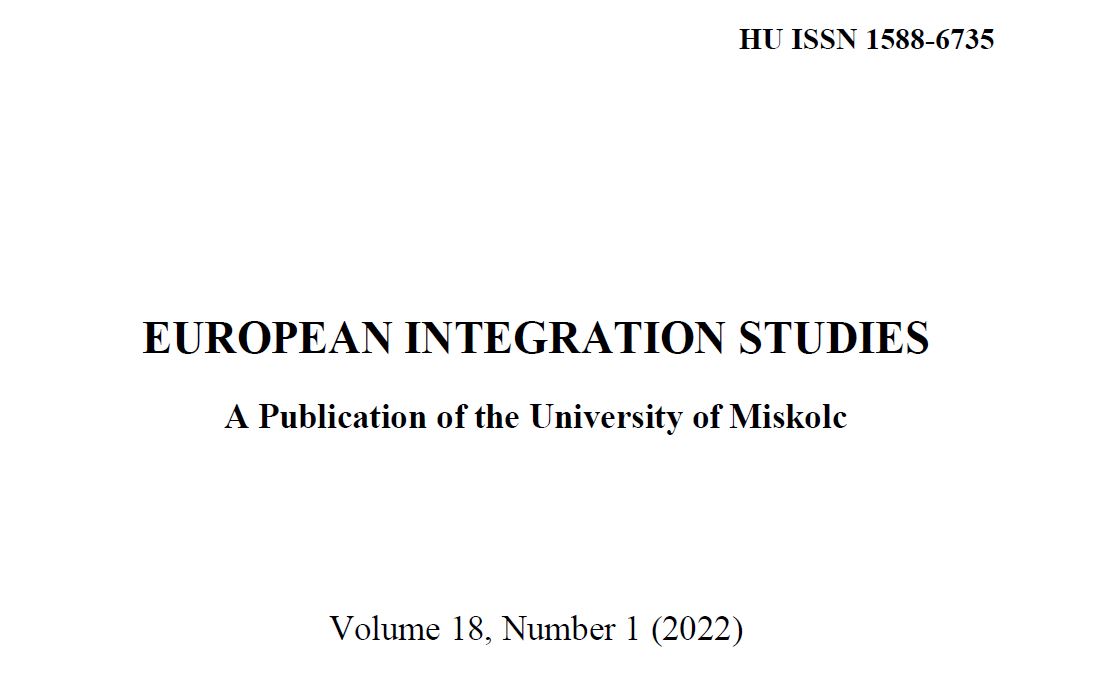‘No pain, no gain’ – a comparative analysis of Austrian and Louisiana contract law concerning the correlation between risk-taking and irrelevance of original and continuing laesio enormis
DOI:
https://doi.org/10.46941/2022.e1.17-39Schlagworte:
laesio enormis,, contractual risks,, General Civil Code of Austria,, Louisiana Civil Code,, Sale of HopeAbstract
For all contracts, the risk component is either the initial lack or the subsequent disruption of the value balance of services. Determining the conditions under which the value of the service and the consideration at the time of the contract’s conclusion (as a matter of invalidity) or at the time of the performance (as a matter of breach of contract) can be in proper balance may be both a legislative and an enforcement issue. If the band, within or around which the difference between the two values is not considered to be legally undesirable, is defined by the legislator, there is no discretion left to the application of the
law. However, in the case of a generalised rule, i.e., where the legislator does not define disproportionality in terms of a specific ratio or range of values, it is at the discretion of the jurisdiction to decide on the question of proportionality. The rules of invalidity and of breach of contract as traffic safety criteria are expressly excluded by law for certain types of contracts, while in other cases, the law expressly authorises the parties to exclude these guarantee rules for their legal relationship by their commercial will, since their interests are precisely directed towards a higher degree of risk-taking. Where these rights are not based on law, the parties’ contractual intention must include the assumption of these rights. In the continental-rooted civil codes of the US-State of Louisiana, the problem is based on a body of law being fairly similar to that of Austria: Even the wording of the codes’ provisions is somehow identical. At the same time, it is remarkable that, compared to this legal environment, judicial thinking in litigation before the courts of the highest instances greatly differs.
Literaturhinweise
REFERENCES
Aubry, C. – Rau, F.-C. (1907). Cours de droit civil français. 5e éd. Vol. V. Paris: Marchal et Billard.
Bauerband, J. J. (1873). Institutionen des französischen in den deutschen Landen des linken Rheinufers geltenden Civilrechtes. Bonn: Marcus.
Brauer, F. (1810). Erläuterungen über den Code Napoleon und die Großherzoglich Badische bürgerliche Gesetzgebung. Bd. III. Kalrsruhe: Müller.
Corey, E. (1945–46). The Reversionary Mineral Interest. Tulane Law Review, 20, pp. 259–267.
Cretschmar, C. (1883). Das Rheinische Zivilrecht in seiner heutigen Geltung. Düsseldorf: Hagel.
Dainow, J. (1958). Moreau Lislet’s Notes on Sources of Louisiana Civil Code of 1808. Louisiana Law Review, Vol 19, No. 1, pp. 43–51.
Dalloz, V. A. D. (1905/1907). Nouveau code civil. Tom. IV. Paris.
Finkenauer, T. (2010). Vererblichkeit und Drittwirkungen der Stipulation im klassischen römischen Recht. München: Mohr Siebeck.
Fitch, J. G. (ed.) (1987). Seneca’s Hercules Furens: A Critical Text with Introduction and Commentary. Ithaca and London: Cornell University Press.
Förtsch, R. (1897). Vergleichende Darstellung des Code civil und des Bürgerlichen Gesetzbuches für das Deutsche Reich. Berlin: Liebmann.
Franklin, M. (1940–41). Libraries of Edward Livingston and of Moreau Lislet. Tulane Law Review, Vol. 15, No. 3, pp. 401–414.
Freiherr von Eggers (1811). Bemerkungen über den Codex Napoleon in Rücksicht auf dessen Einführung in den Staaten des Rheinbundes. Leipzig: Fleischer.
Henssler, M. (1994). Risiko als Vertragsgegenstand. Tübingen: Mohr Siebeck.
Herman, S. (1995). The Contribution of Roman Law to the Jurisprudence of Antebellum Louisiana. Louisiana Law Review, Vol. 56, No. 2, pp. 257–315.
Hesiod (2018). Works and Days. In: Most, G. W. (ed.). Theogony. Works and Days. Testimonia. Revised ed. Cambridge, Mass: Harvard University Press.
Jakab É. (1993). Stipulationes aediliciae: A kellékhibákért való helytállás kialakulása és szabályai a római jogban [=Formation and Rules of Warranty for Material Defects in Roman Law]. Acta Univ. Szeged. Acta Jur. et Pol., Vol. 44, No. 7,
Jakab É. (2011). Borvétel és kockázat: Jogtudomány és jogélet a Római Birodalomban [=Wine-Purchase and Risk: Jurisprudence and Legal Life in the Roman Empire]. Budapest: Akadémiai Kiadó.
Jusztinger J. (2016). A vételár az ókori római adásvételnél [=Purchase Price in Ancient Roman Sale]. Budapest–Pécs: Dialóg Campus.
Klein, G. (1979). Aléa et équilibre contractuel dans la formation du contrat de vente d’immeuble en viager. Revue Trimestrielle de Droit Civil, 78, pp. 13–40.
Koziol, H. – Welser, R. (2008). Grundriß des bürgerlichen Rechts. Bd. I. Wien: Manzsche.
Lodigkeit, K. (2004). Die Entwicklung des Abtretungsverbotes von Forderungen bis zum § 354 a HGB [=Deutsches und Internationales Wirtschaftsrecht 42]. Münster: LIT.
Márkus D. (1907). Az osztrák Általános Polgári Törvénykönyv mai érvényében [=ABGB in Its Most Recent Effect]. Budapest: Grill.
Medicus, D. (1987). Bürgerliches Recht. Eine nach Anspruchsgrundlagen geordnete Darstellung zur Examensvorbereitung. 13th ed. Köln: Heymanns.
Most, G. W. (ed.) (2018). Theogony. Works and Days. Testimonia. Revised ed. Cambridge, Mass: Harvard University Press.
Mourlon, F. (1896). Répétitions écrites sur le Code civil. Tom. III. 13e éd. Paris: A. Marescq.
Napoleons Gesetzbuch. Einzig officielle Ausgabe für das Großherzogtum Berg. (1810). Düsseldorf: Levrault.
Oppenheim, B. K. (1940–41). Comments on the Sale of a Hope of the Louisiana Civil Code. Tulane Law Review, 15, pp. 591–599.
Palmer, V. V. (2021). The Lost Translators of 1808 and the Birth of Civil Law in Louisiana. University of Georgia Press. (Southern Legal Studies Ser., 6)
Pardessus, J.-M. (1836). Cours de droit commercial. Tome I. Bruxelles: Tarlier.
Parise, A. (2008). The Place of the Louisiana Civil Code in the Hispanic Civil Codifications: The Comments to the Spanish Civil Code Project of 1851. Louisiana Law Review, Vol. 68, No 3, pp. 823–929.
Perrin, B. (ed.) (1914). Plutarch, The Parallel Lives. Vol. I. Cambridge, Mass and London: Loeb Classical Library Edition.
Pollard, A. (ed.) (1898). Robert Herrick, The Hesperides & Noble Numbers. Vol. II. Revised ed. London and New York: Lawrence & Bullen.
Roisman, H. M. (comm.) (2020). Sophocles’ Electra. Oxford Greek and Latin College Commentaries. Oxford: Oxford University Press.
Roland H. – Boyer, L. (1986). Adages du droit français. 2nd ed. Vol. II. Lyon: L’Hermès.
Scheuchenstuel, C. (1855). Motive zu dem allgemeinen österreichischen Berggesetze vom 23. Mai 1854. Wien: Braumüller.
Shinn, C. W. (1987). The Aleatory Contract in the Louisiana Civil Code: A Distinction without a Difference. Loyola Law Review, Vol 33, No. 2, pp. 295–392.
Spangenberg, E. P. J. (1811). Spangenbergs Commentar über den Code Napoleon. Bd. 3. Göttingen: Römer.
Troplong, R.T. (1837). Le droit civil expliqué. 3e éd. Paris: Hingray.
Walter, G. (1987). Kaufrecht. In: Gernhuber, J. (ed.). Handbuch des Schuldrechts. Tübingen: Mohr.
Winiwarter, J. M. (1844). Das Österreichische bürgerliche Recht systematisch dargestellt und erläutert. Das persönliche Sachenrecht nach dem Oesterreichischen allgemeinen bürgerl. Gesetzbuche. Wien: Braumüller u. Seidel.
Winner, M. (2008). Wert und Preis im Zivilrecht. Wien: Springer.
Wolff, C. (1745). Jus Naturae methodo scientifica pertractatum. Magdeburg: Renger.
Zachariä. K. S. (1808). Handbuch des französischen Civilrechts. Bd. I. Heidelberg: Mohr.
Zimmermann, R. (1996). The Law of Obligations. Roman Foundations of the Civilian Tradition. Oxford: Oxford University Press.





